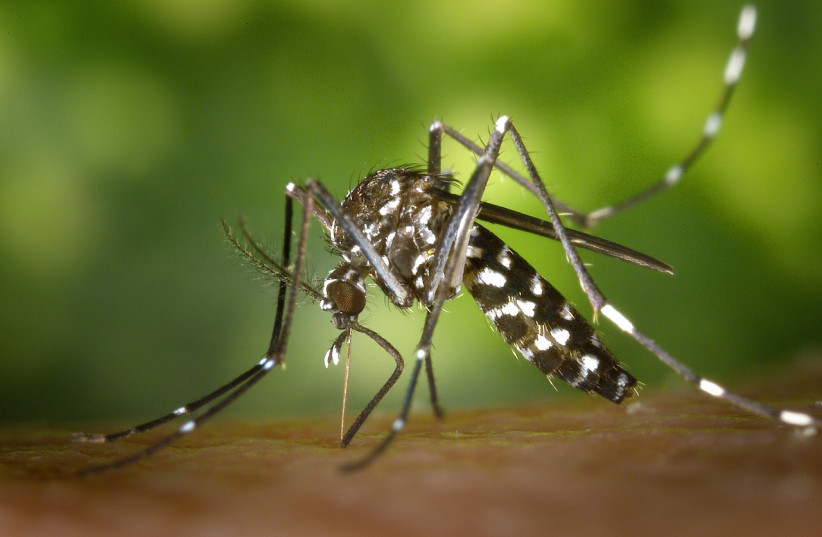Mosquitoes are among the most despised of pests, regularly plaguing mankind with bites that draw blood and cause extreme itchiness and irritation - and, if you're unfortunate enough, make you sick with diseases like malaria. And you may have also noticed that some people seem to get bitten by mosquitoes more than others.
Everyone has most likely asked at one point or another: Is there any way to not get bitten by mosquitoes?
Well, according to a new study, published in the peer-reviewed academic journal Nature Communications, there may be a way to do just that. Just don't wear red.
Yes, it's more complicated than that, but based on the findings of the study, the way to avoid mosquitoes has everything to do with color.

How do mosquitoes work?
Female mosquitoes are infamous for their bites, and they have specific targets. Their bites don't just cause itchiness but can cause fatal diseases such as Zika, West Nile virus, Dengue, yellow fever, malaria and more. In fact, mosquitoes are responsible for uncountable human deaths. As such, it's no wonder so many people want to stop them from biting humans.
One Israeli start-up, Diptera.ai, hopes to carry out a pilot to exterminate mosquitoes by releasing millions of infertile male mosquitoes into the wild
They tend to find their targets using the special sense of smell known as olfaction, which helps them hone in on potential spots to bite.
According to senior author Jeffrey Riffell of the University of Washington, "I used to say there are three major cues that attract mosquitoes: your breath, your sweat and the temperature of your skin. In this study, we found a fourth cue: the color red, which can not only be found on your clothes, but is also found in everyone’s skin."
When these insects look for their targets, they first find by detecting carbon dioxide that we exhale, in a process Riffell compares to smelling pie crust and cinnamon while walking down the street and knowing there must be a bakery nearby.
But after smelling carbon dioxide, they tend to fly towards certain colors. Specifically, they tend to go for red, orange, black and cyan.
Other colors like green, white, blue and purple, on the other hand, they tend to ignore.
<br>So how do we know this?
In order to figure this out, the researchers tracked the behavior of a few Aedes aegypti mosquitoes, also known as yellow fever mosquitoes.
These were exposed to different visuals and scents to stimulate them, spraying them with different odors and then showing different images. This includes the back of a hand, uncovered and exposed, and the back of a white glove.
Of the two, the mosquitos preferred the uncovered hand.
<br>But skin isn't red, right?
That isn't technically true.
So while the researchers don't fully understand why the mosquitoes do this, the hypothesis is that it has to do with wavelengths of light.
Humans, when we see wavelengths of light, visualize it as distinct colors. The length of the wavelength indicates the color. For example, 450-nanometer wavelengths are blue while 650-nanometer wavelengths are red.
The colors mosquitoes prefer all had one thing in common: they have longer wavelengths of light. Further, human skin, regardless of the actual color and pigmentation, will always give off a wavelength similar to red and orange.
<br>So can covering our skin and wearing other colors help avoid mosquitoes?
Yes, it seems so. But it isn't foolproof.
More research is needed to examine other factors, such as close range and skin secretion.
In addition, the study only focused on one species of mosquito – others may have different approaches for how they find targets.
And even among the mosquitoes studied, some did not behave the same as the others due to the presence of mutations, one which mutated the gene needed to smell carbon dioxide and another that blocked them from seeing longer wavelengths.
But the findings do bring humans one step closer to finding a way to deal with the ever-present annoyance and threat that are mosquitoes, as now, a new controllable variable has entered the picture.
